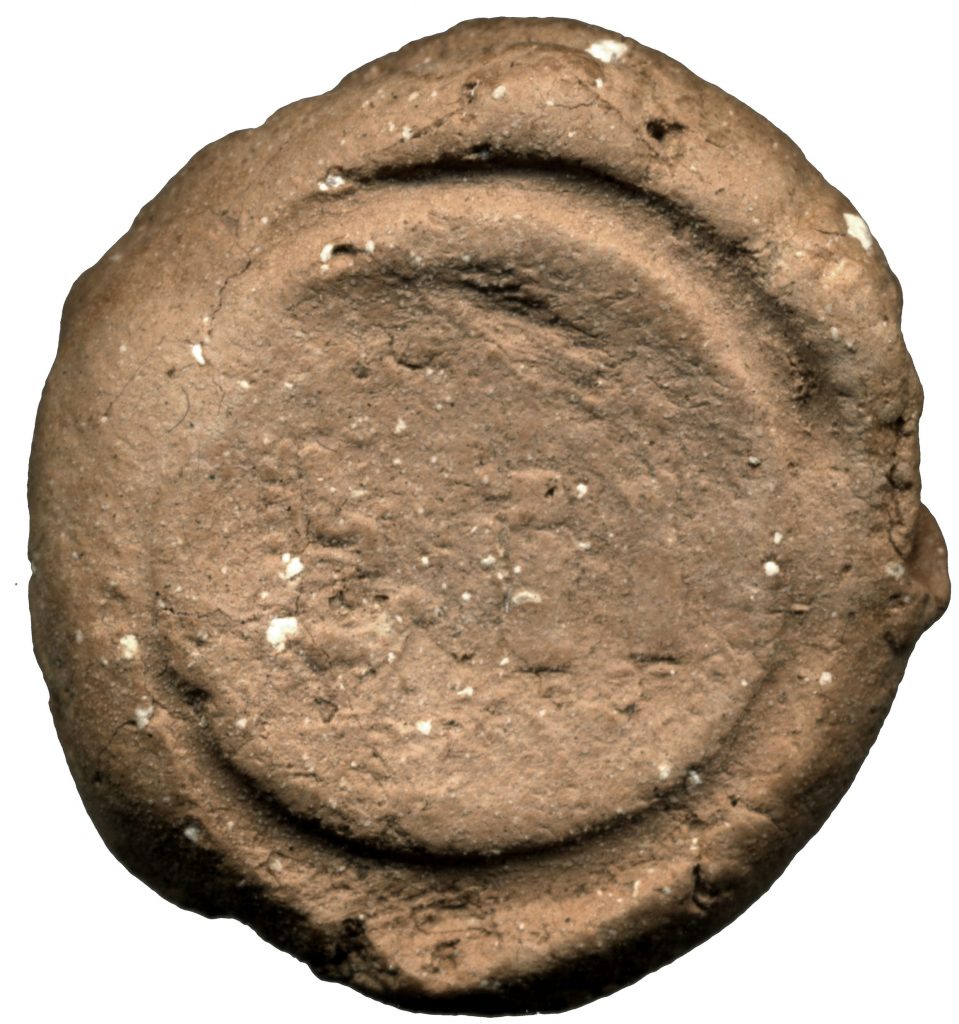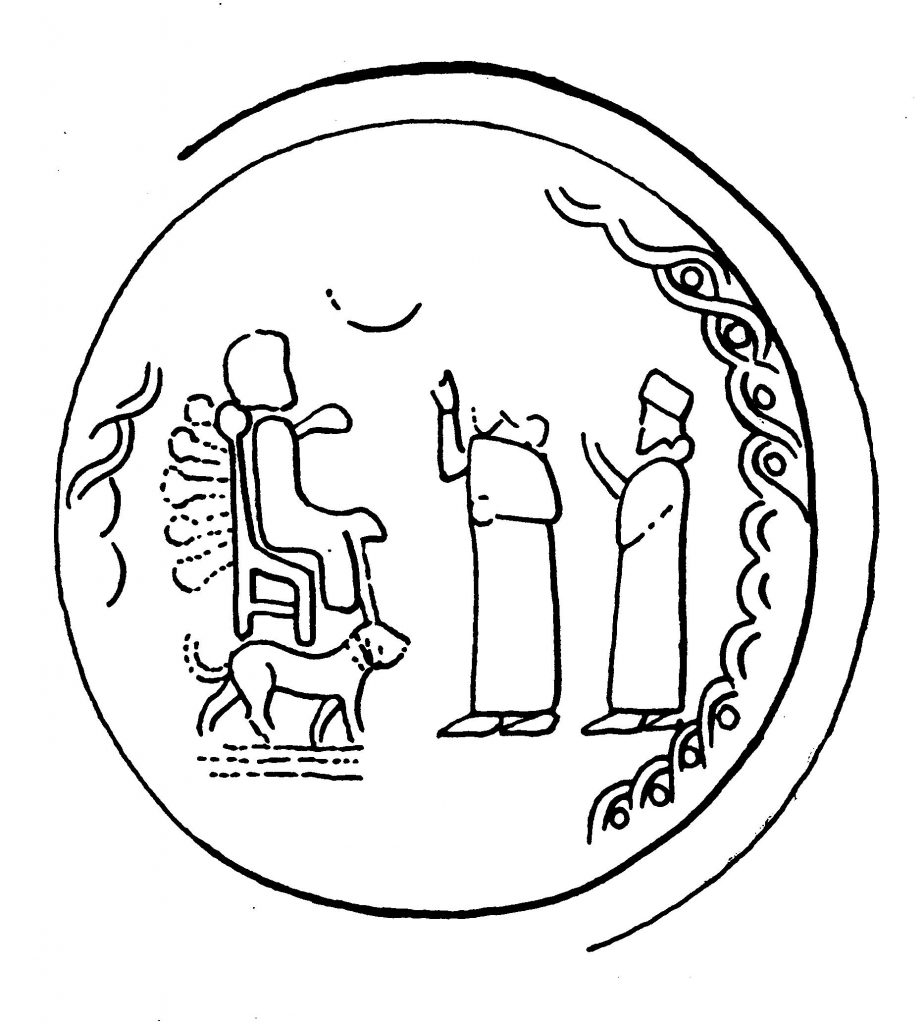

 | Object type: Sealing |
| Museum: British Museum, 84671 | |
| Findspot: Excavated/Findspot: Nineveh (north of Iraq) | |
| Culture, period: Neo-Assyrian | |
| Production date: VII century BC (?) | |
| Material: Clay | |
 | Dimension: L 2,54 cm; W 2,38 cm |
 | Nonverbal Communication: Raising of the hand, Raising of the hands, Erect posture, Touching the nose |
Description:
The sealing shows probably an Assyrian queen with the Assyrian king approaching a goddess who is probably Gula, and seated on a straight-backed throne supported by a crouched dog.
On the basis of some textual evidence from the Neo-Assyrian period which describes a gesture implying the raising of the hand(s), the Akkadian expressions used to describe such a gesture are conventionally šu’illakku and nīš qātī, which can be interpreted as an idiom for “prayer” and commonly include a physical movement. The king, namely the figure between the hypothetical queen and the deity, probably performs a gesture of humility, identified in Akkadian with the the appa labānu gesture (“to stroke the nose”). The seated deity probably performs a greeting gesture addressed to the queen.
Bibliographic references:
Radner K. 2008, “The delegation of power: Neo-Assyrian bureau seals”, in R. Briant – W.F.M. Henkelman – M.W. Stopler (éds.), L’archive des Fortifications de Persépolis. État des questions et perspectives de recherches. Actes du colloque organisé au Collège de France par la « Chaire d’histoire et civilisation du monde achéménide et de l’empire d’Alexandre » et le « Réseau international d’études et de recherches achéménides » (GDR 2538 CNRS), 3-4 novembre 2006, Paris, 481-515.
Niederreiter Z. 2021, “Neo-Assyrian Seal Depicting «Istar, Worshipped by an Assyrian King and Queen» and a Scorpion as Well: Notes on the BM WA 2002-05-15, 1 Stamp Seal, Formerly Kept in the Southesk Collection”, Nouvelles Assyriologiques Brèves et Utilitaires1, 42-49 (study)
Portuese L. 2022: “A Gender-Centered Perspective on Manners and Etiquette for Understanding the Historical Role of the Assyrian Queen”, KASKAL Rivista di storia, ambienti e culture del Vicino Oriente Antico 19, 50–52 (study)
© Image credits: © The Trustees of the British Museum
